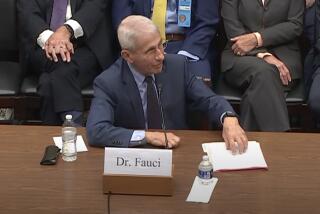Hillary Clinton exits Benghazi probe looking stronger than ever

When Hillary Clinton went to Capitol Hill on Wednesday, Republicans opened their bags of overly ripe conspiracy theories and moldering fruitcake ideas and tossed everything at her. Every shot missed.
Republican senators and congressmen on the foreign affairs committees of both houses had insisted that the departing secretary of State come in for a full day of hearings about the deadly terrorist attack on the American consulate in Benghazi, Libya. Some of them must have thought this was a great chance to do preemptive damage to the most popular choice for the 2016 Democratic presidential nomination. Instead, she made them look like the clumsy bad guys in an Aaron Sorkin political drama.
The State Department’s own independent investigative board has already answered most of the serious questions about the Benghazi tragedy in which four Americans were killed, including U.S. Ambassador J. Christopher Stevens. The panel cited the failures of mid-level officials and suggested 29 ways to improve the system. Clinton said implementation of those steps was already 85% complete.
A productive hearing would have concentrated on what else can be done to prevent similar tragedies in the future -- a discussion that would have also included examining why Congress not only consistently underfunds the State Department, but has blocked expenditure of money that has already been appropriated to shore up American diplomatic efforts in several international trouble spots.
Instead, too many of the Republican committee members had been coached to dredge up old questions about the U.S. ambassador to the United Nations, Susan Rice. Last September, on the weekend following the attack, Rice went on the Sunday TV news shows and underplayed the terrorist connection, instead suggesting that the incident may have been connected with riots in other Muslim countries that were set off by an online preview of a never-made movie defaming the prophet Muhammad. Questions about why Rice said what she said have been answered repeatedly: She was parroting talking points provided by U.S. intelligence services.
A useful line of questions would have followed up on that answer. An L.A. Times Op-Ed article by former Joint Chiefs of Staff aide Sarah Chayes suggests where such an inquiry would lead: “One lesson to be drawn from the Benghazi snafu is that powerful bureaucratic filters prevent crucial information from reaching senior U.S. government leaders. Whether the client at the top is the U.N. ambassador, the director of Central Intelligence or the president, bureaucracies consistently massage and filter information before passing it up the chain.”
But the Republicans did not want to explore the tendency for bad information to emerge from the intelligence bureaucracy, they wanted to resurrect a specious political attack that got them nowhere in the final days of the presidential campaign. In their wild imaginings, Rice’s ill-informed comments were not just the result of bad information, they were part of an Obama administration effort to dupe the American people.
Clinton easily slapped back this and other equally off-the-wall lines of inquiry. Unlike most of her inquisitors who seemed to be working from Fox News talking points, Clinton was working from fact-based briefings. With their cranky theatrics, Kentucky’s freshman Sen. Rand Paul and Wisconsin Sen. Ron Johnson proved to be perfect foils for Clinton’s virtuoso performance.
At the end of the day, Clinton left the stage looking stronger than ever. The only people who may feel worse about that than the Republicans are the ambitious Democrats who are contemplating a run for the Democratic presidential nomination next time around. On Wednesday, Clinton did not look too old, too tired or too vulnerable. She looked like she could beat anyone.
More to Read
Get the L.A. Times Politics newsletter
Deeply reported insights into legislation, politics and policy from Sacramento, Washington and beyond. In your inbox three times per week.
You may occasionally receive promotional content from the Los Angeles Times.











